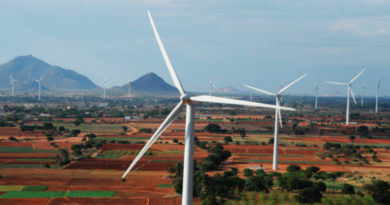NYK announces biofuels test-run on large crude oil tanker
Over the next three months, the vessel will use the biofuel to assess and ensure the safety and stability of its long-term use.
 Carbon Shipping Rises As Emitters Explore Large-Scale Storage: Report
Carbon Shipping Rises As Emitters Explore Large-Scale Storage: Report
Japanese conglomerate NYK Line has announced that it has initiated of a long-term biofuel test on its large crude oil tanker, TENJUN, starting this month (May 2). This trial represents NYK’s first extended biofuel test on a vessel, following previous short-term tests on bulk carriers, car carriers, and LPG carriers.
NYK stated that the biofuel was supplied to the TENJUN in Singapore. Over the next three months, the vessel will use the biofuel to assess and ensure the safety and stability of its long-term use.
The TENJUN, a crude oil tanker built in 2008 by Japan Marine United Corporation and sailing under the flag of Panama, has been confirmed for this long-term biofuel trial. NYK, the beneficial owner of the vessel, highlighted that the biofuels used are derived from organic resources and produce virtually zero carbon dioxide emissions when burned. They emphasized that biofuels are a key alternative to heavy engine oil, capable of significantly reducing greenhouse gas emissions. This trial marks a significant step in the shipping industry’s transition from heavy engine oil to nearly zero-emission fuels.
Biofuels can be utilized in the heavy oil-powered engines common on large commercial vessels, making them a critical transitional solution for reducing greenhouse gas emissions as the industry moves towards zero-emission fuels.
Previously, the Global Centre for Maritime Decarbonisation collaborated with NYK on Project LOTUS, which aimed to evaluate the effects of using continuous biofuel over longer periods on vessel operations.
Earlier this year, NYK would also break ground at a site in ‘Chiba Prefecture’ in Japan where the company will install a test engine facility* to evaluate the safety of biofuels and accelerate their practical application. The NYK Group had held then that it would complete the installation of the test engine in June and analyze the biofuel in combustion tests over the next three years.




